You are currently browsing the daily archive for October 3, 2010.
Republished and translated by blog’ author from “Orthodox Typos”, October 1st, 2010
(one of the Orthodox publication of Greece)

Heated disagreement at Vienna between the representatives of the Orthodox Church, as reflected in the statements of Metropolitan Ioannupol of Pergamon, the representative of the Moscow Patriarchate: Bishop Hilarion and the Vatican representative for the „unity” of the Christian Churches.
Orthodox Typos: the dialogue with the heretics has to stop permanently, “here and now”, in order to stop the harm/deceit of the faithful and the clergy. Alive is our Lord God, Who protects His Orthodox Church.
Our Lord is a Living God! This was seen at Vienna, where the Theological Dialogue was held between the Orthodox and the Catholics over the Pope’s primacy in the first millennium. The dialogue ended in failure, to the great disappointment of the Ecumenist’ bishops of the Church of Greece, who constantly deceit/slander the faithful (that worrie to keep the tradition and the Holy Canons) and distort the thinking and the Orthodox faith by recognizing as canonical the heresy of Papism. The dialogue has ended in failure because the papal representatives did not step back and have remained steadfast in supporting the papal supremacy. The dialog was also led to failure due to the heated disagreements between the representatives of the Orthodox Churches. Each Orthodox representative exposed issues that brought hardship to the Dialogue. The Orthodox have exposed different views regarding of how the unity is to be understood. This arise from the official statements of both Ecumenist Metropolitan of Pergamon: Kir Ioannis Zizioulas, the Vatican official on „unity “: “Archbishop” and reformer – Mr. Koch, the Metropolitan and Foreign Minister of the Moscow Patriarchate: Bishop Hilarion, but also of Metropolitan Seraphim of Ioannupol, who in his interview, labeled those opposed to dialogue with the Catholics as mentally ill people. :(
It doesn’t means that if some people are crazy, they have the right to question our Orthodox thinking (Amen.gr, 09/26/2010 )
The Metropolitan of Ioannupol was the first of the participants, who made public in an interview, the failure of the Dialogue.
Seraphim of Ioannupol had declared: “At Vienna we continued the debate over text analysis that began in Cyprus and we had not yet completed the final form of this text. The Committees have the responsibility to edit this text based on the points made in the debate and to prepare us a working/text document with the additions and comments of the members from the Joint Commission. This text refers to the first millennium and analyzes the role of the bishop in the life of the Church at the local, regional and wider level. The text of this publication is not currently available, because does not have a final form . The Roman Catholics have their views on how they understand the role of the bishop of Rome in the first millennium, and the Orthodox are referring to the place that the historical Patriarchs had in the old historical Patriarchates of the East: in Constantinople, Alexandria, Antioch and Jerusalem …
NP (the interviewer): Your Eminence, lets insist a bit on the question of primacy …
Metropolitan of Ioannupol: As I already mentioned, the theme of primacy (in general, and not as something pertaining to the Pope, transl note) is something that appears as a pastoral need in the life of the Church, and pertains to the bishops of the Church, first in a diocese, and later in a larger region with several Dioceses,
– to convene to chair and to coordinate the synaxes of the bishops who act together, by invoking the descent of the Holy Spirit on the basis of Scripture and the Holy Tradition of the Church,
– for keeping the faith and the order of the Church which the heretics or schismatics were distorting.
In this context we refer to the bishop’s place in the life of the church during the first millennium and, of course of the bishops at Rome, Constantinople, Alexandria, Antioch, Jerusalem, Salamis, and other important religious centers that were developed in the first millennium, which we referred to.
It doesn’t mean that because the Roman Catholics presented points – as they desire to see the place of the bishop of Rome, the Orthodox have to accept them, nor that the Roman Catholics are obliged to accept the points that are presented by the Orthodox regarding the role of the bishops in the life of the Orthodox Church of the first millennium. We are just in the beginning of the dialogue, to prepare proposals for a later stage to be sent to our Holy Synods for decisions.
The Statements of the Representative of the Moscow Patriarchate
The Foreign Minister of the Moscow Patriarchate, Metropolitan Hilarion, according to “Romfea.gr ” had also made a declaration. The Metropolitan made it clear that some statements had been scheduled for debate while others have been debated, because there were serious disagreements over the Pope’s jurisdiction in the first millennium, something which the Metropolitan Ioannupol also reported. (…)
Bishop Hilarion noted that “the work (text) of the Joint International Commission for Theological Dialogue between the Roman Catholic Church and the Orthodox Church, which was made public by some mass-media does not reflect the position of the orthodox side in the issue over the primacy of the Bishop of Rome and can be treated only as an auxiliary material for future work.”
‘Despite media allegations, there was no openness in the meetings of the Commission for Theological dialog between the Orthodox and Roman Catholics in Vienna, ” Kir Hilarion added.
‘ Our view is that this text requires an essential review in what follows, and only after that it can receive the status of an ‘ auxiliary text material’ ( instrumentum laboris ), which will be used to prepare future texts, but it will have no official status “, said Kir Hilarion added.
“Furthermore – he added – the text lacks a clear and obvious finding that the jurisdiction of bishop of Rome in the first millennium did not include the Church in the East (the actual Orthodox Church, transl note).”
He also noted:
“We hope that these goals and gaps will be filled properly once the text is processed. After a debate, the Commission has decided that this text requires further processing and that the final decision on its status will be postponed for the next meeting of the Committee, that is in the next two years. Until then we will prepare a new text, which will deal with the same problem, but from a theological prospective.”
“For it is very evident for the Orthodox members that in the first millennium, the Bishop of Rome in the West did not exert exclusive jurisdiction over the Christian Church in the East, because in the East, the Church was divided territorial between the four patriarchs of the Constantinople, Alexandria, Antioch and Jerusalem, ” he stressed.
He concluded that:
„The Bishop of Rome had no direct jurisdiction in the East, although in some historical cases resorted to the Eastern bishops in theological disputes by arbitration”.
‘But these appeals were not systematic and can not in any way be interpreted as meaning that the Bishop of Rome in the East was seen as holder of supreme dominion over the Ecumenical Church”.
„I hope that at the next meeting of the Commission, the Roman Catholic Church will accept this position, which is based on countless historical evidence, ” the president for External Relations of the Moscow Patriarchate added.
The Metropolitan of Pergamum
The Ecumenist Metropolitan of Pergamon: Ioannis Zizioulas, admitted there are issues and agreed with the Vatican representatives for the „unity”, that this model of unity is deemed for the future.
He therefore requested that the Orthodox Church needs to strengthen its universal unity, a concluding fact for the sharp disagreements between the Orthodox representatives in the Dialogue. Because it resulted that the papacy has not taken any step back in the dialogue, Kir Ioannis also called out to the Catholic representatives to stress more the conciliatory dimension. He stated that “if these two things will happen, then the result will come quickly.”
Next, by referring to an Pan – Orthodox Synod he said (according to Romfea.gr) :
‘ Of course we must be united in faith a lot. Regarding an Pan – Orthodox Synod, we worry – and we admit it – that the autocephaly is a problem mainly when it is linked to nationalist themes. But I ‘m happy to say that we made a satisfactory progress towards a Pan -Orthodox Synod.
Orthodox Typos: “The Dialogues need to Stop!”
The Ecumenist bishops, the Phanar (Ecumenical Patriarchate) and the Church of Hellas (Greece) must stop these kind of theological dialogues, for they expose and scandalize the faithful people. The Papists have demonstrated once more at Vienna that are unrepentant and inflexible in their heretical theories such as the primacy and infallibility. They had demonstrated that they refuse the synodalicity. And, it is finally shown, that the representatives of the Orthodox Churches do not have a common position or vision on the ‘unity’, and that they do not consider papacy, “a sister Church”. To continue the Dialogue means a real provocation for the people of faith.

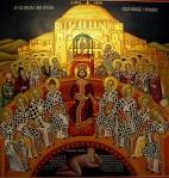 Christian Dogma
Christian Dogma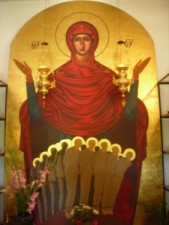 Christian Martyrs
Christian Martyrs Christian Orthodox Churches and Monasteries
Christian Orthodox Churches and Monasteries Christian Sermons and News
Christian Sermons and News Church's Teachings on Fasting
Church's Teachings on Fasting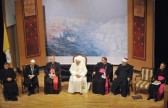 Ecumenism – a Great Heresy
Ecumenism – a Great Heresy Father George Calciu
Father George Calciu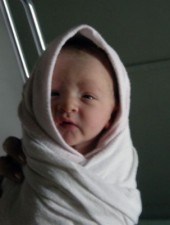 Life_a Sacred Gift form God
Life_a Sacred Gift form God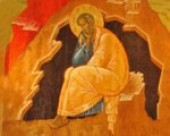 Orthodox Saints and Church Fathers
Orthodox Saints and Church Fathers Spiritual Elders
Spiritual Elders Daily Bible Readings
Daily Bible Readings Journey to Orthodoxy
Journey to Orthodoxy Listen to Ancient Faith Radio
Listen to Ancient Faith Radio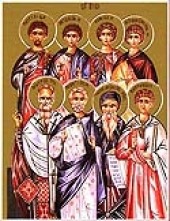 Orthodox Calendar of Feasts and Saints
Orthodox Calendar of Feasts and Saints Orthodox Christian Mission Center
Orthodox Christian Mission Center Orthodox Institute
Orthodox Institute OrthodoxChristianNetwork TV
OrthodoxChristianNetwork TV
Recent Comments